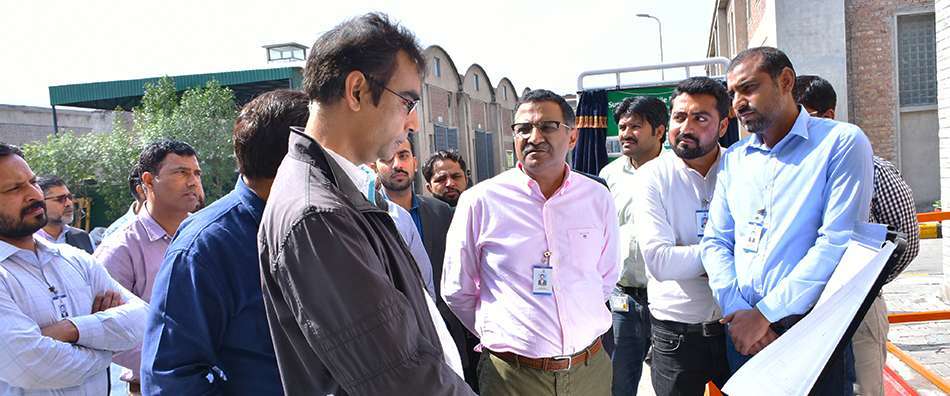Traditional Textile Bleaching is an important step in textile processing whether the product has to be processed for white or colored. However, the traditional process uses extensive water and chemicals, generating a higher negative impact for the environment. Being aware that Pakistan is already facing water scarcity, companies need to use fresh water wisely in their processes to avoid running out of fresh and clean water. At Interloop Limited, sustainability driven initiatives are continuously being put in place to reduce water, chemical and energy usage in its operations. On Mar 5, 2020, Navid Fazil, CEO Interloop inaugurated the new Sustainable Textile Bleaching Project at the Interloop Industrial Park, Faisalabad.
Through this project, up-gradations are being made in the existing processing machines which will now be re-designed for multiple fill and drain system. Process optimization and engineering controls will make this project get high reproducibility with significant water, chemical and energy reduction. In this newly developed system, once the fabric is bleached, the chemicals will not be drained but collected in two separate storage tanks and will be reused multiple times, thus saving significant amount of water and chemicals. By using this new method, there will also be significant reduction in the pollution load of wastewater at the effluent treatment plant, as most of these chemical recipes will be reused in the system. The newly established system is fully developed, optimized and in use for bulk productions. By providing water, chemical and energy efficiency, this project has the potential to offer one of the best solutions towards sustainable textile processing, along with healthier living environment and improved fresh water situation in the country.
The environment impact of this Project will include:
| Savings | |
| Water Saving | 94500 Liters/Day,34492500/Year |
| Steam Reduction | 3785 kg/Day1362600 kg/Year |
| Electricity Saving | 60 KWH/Day,21600 kWh/Year |
| Chemical Reduction | 157 kg/Day |
| Impacts | |
| Daily Water use for families (based on 6 members family) | 29,842 Families |
| Tree seedlings grown for 10 years | 1,984 |
